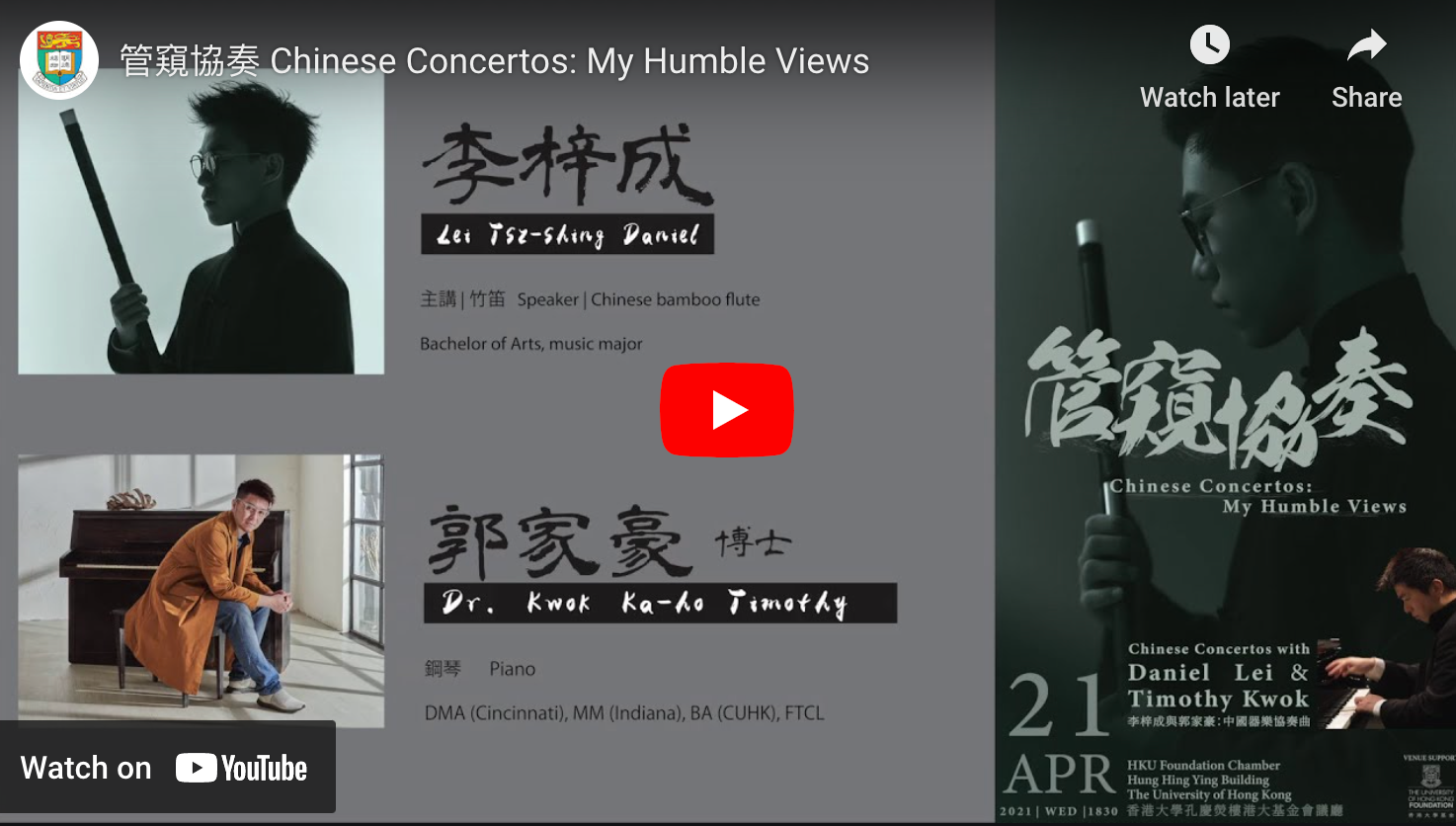Chinese Concertos: My Humble Views
There have been a lot of concertos written for Chinese music, which, contrary to their western counterpart, are usually with programmatic titles and adopt a free and loose approach to musical form.

[This is the description of Daniel Lei's ethnographic research "The Categorisation of Chinese Concertos" supported by the University of Hong Kong's Undergraduate Research through Teaching Development and Language Enhancement Grant (local research) in 2021.]
The word “concerto” comes from the Latin concertare, literally “to contend, compete” and also “to work together”. Originating in the 18th century, this musical form is a multi-movement instrumental work that maintains virtuosity and contrast between an orchestral ensemble and a group or a solo instrument.
Separately, looking back at the development history of Chinese music, from Royal Court Music 雅樂 to 13 Suites for Strings 弦索十三套 to Silk and Bamboo music 江南絲竹, a performance form similar to a concerto has never been seen. Therefore, in a musicological and historical perspective, the concertos in China – whether they intend to be such musical form or not – shall be regarded as compositions that are structured in an imported idiom.
Since the establishment of the People's Republic of China in 1949, more and more widespread use of western idioms has been adopted in Chinese music compositions. The republic was anxious to manifest its fledgling national identity through the country's cultural and soft power. Perhaps it is for this reason that there have been a lot of concertos written for Chinese music, which, contrary to their western counterpart, are usually with programmatic titles and adopt a free and loose approach to musical form.
Many of these compositions have been categorised as concertos by both Chinese and Western scholars and professional performers, and or have that term in their titles. This particular repertoire has an interesting mix of Western and Chinese influences but with some awkward inconsistencies, rendering their categorisation problematic. My project endeavours to decipher what the term “concerto” means or represents in Chinese instrumental repertoires, and to share my humble views on the concertos written for Chinese music, which little attention has been directed towards their categorisation. The understanding of the nature of the categorisation they gained in this project will prepare the field well for interpreting an academic, macroscopic, and systematic method to study “Chinese concertos” for academia in the future.
See the highlight my graduation lecture-recital with Dr Timothy Kwok on piano:
